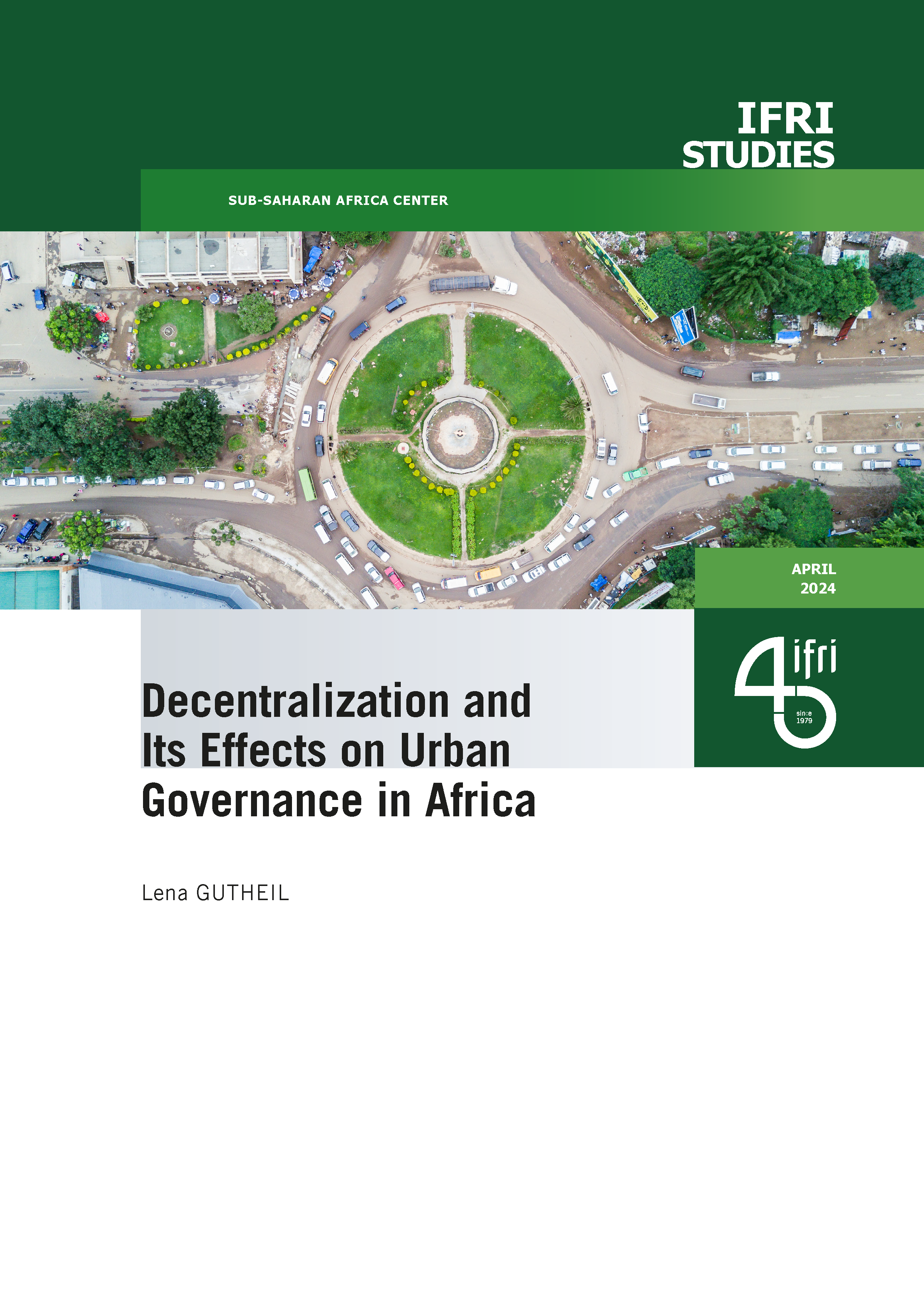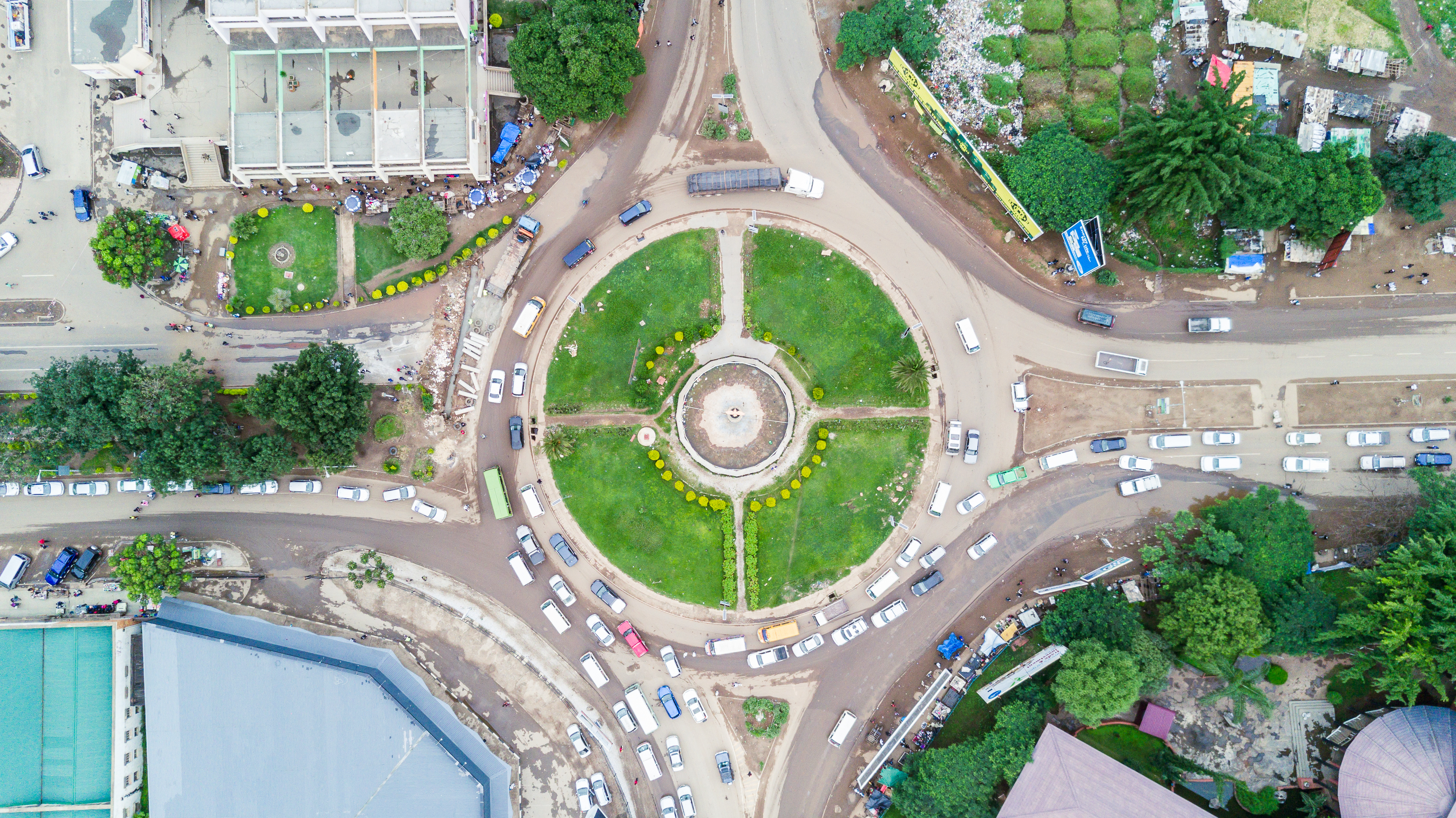Decentralization and Its Effects on Urban Governance in Africa

The importance of African cities as economic, political, and social actors is increasing. While Africa used to be perceived as a predominantly rural continent, it is estimated that by 2050, the urban population of the continent will increase by around 900 million people, nearly tripling.[1]

The world’s ten fastest-growing cities are all in Africa, and soon, more than half of all Africans will live in cities.[2] Major growth is expected in Sub-Saharan Africa: While North Africa is already predominantly urban, the share of the urban population in Sub-Saharan Africa as of 2021 is 42%.[3] The fast growth of cities is often taking place in an unplanned manner, and cities struggle to provide adequate infrastructure and services to their inhabitants. While city residents are, on average, wealthier than rural Africans, the majority of urban dwellers live under precarious conditions in so-called informal settlements.[4] The ability of cities to deal with these challenges chiefly rests on the performance of urban governance.
Urban governance refers to the structures and processes by which informal and formal actors arrive at and implement decisions on how to plan, finance and administer cities.[5] Urban governance involves multiple actors and multiple scales. Apart from municipal actors, other actors such as non-governmental organizations, traditional leaders, the private sector, international donors and the national or subnational governments are involved in governing cities in dialogue with the citizens.[6][7] Decentralization reforms are part and parcel of the political process of (re)defining and negotiating the structures referred to as urban governance. In general terms, decentralization aims at shifting competencies and resources from the central government to territorially-defined subnational levels of government, including cities and municipalities. Decentralization policies define how actors at different governance levels (national, regional, local) collaborate and provide rules and regulations organizing administrative, political, and fiscal relations between these levels. Hence, decentralization policies are of crucial importance for urban governance, as they determine the institutional environment in which urban governance takes place. Not only do they define the competencies of municipal actors, but they also define their level of discretion in different domains. However, decentralization is not a stable and linear process but rather an ongoing and contested process in which municipal actors play important roles in negotiating their access to power and resources.[8] The competition characterizing processes of governing and setting up structures for governing cities makes decentralization inherently political.
[1]. “Africa’s Urbanisation Dynamics 2022: The Power of Africa’s Cities”, OECD, UNECA & AfDB, 2022, available at: https://doi.org.
[2]. “The World’s Cities in 2018. Data Booklet”, UN, 2018, available at: www.un.org.
[3]. “Sub-Saharan Africa: Urbanization from 2011 to 2021”, Statista, 2023, available at: www.statista.com.
[4]. “Africa’s Urbanisation Dynamics 2022: The Power of Africa’s Cities”, op. cit.
[5]. This definition builds on the main characteristics of UN-Habitat’s definition. However, the author does not share the normative components of the definition that presuppose that urban governance is or should be conducive to fostering accountability, transparency, and the rule of law. See https://unhabitat.org.
[6]. S. Schlimmer, “Governing Cities in Africa: A Panorama of Challenges and Perspectives”, Études de l’Ifri, Ifri, February 2022, p. 15.
[7]. The terms local and subnational are used in this paper in line with the OECD. While subnational refers to all government levels below the central level, the local level excludes federal states, see “Regions and Cities at a Glance”, Paris: OECD, 2018, p. 163, available at: https://doi.org/10.1787.
[8]. For a political reading of urban governance see also: S. Bekker and L. Fourchard, Governing Cities in Africa: Politics and Policies, Cape Town: HSRC Press, 2013.
Download the full analysis
This page contains only a summary of our work. If you would like to have access to all the information from our research on the subject, you can download the full version in PDF format.
Decentralization and Its Effects on Urban Governance in Africa






